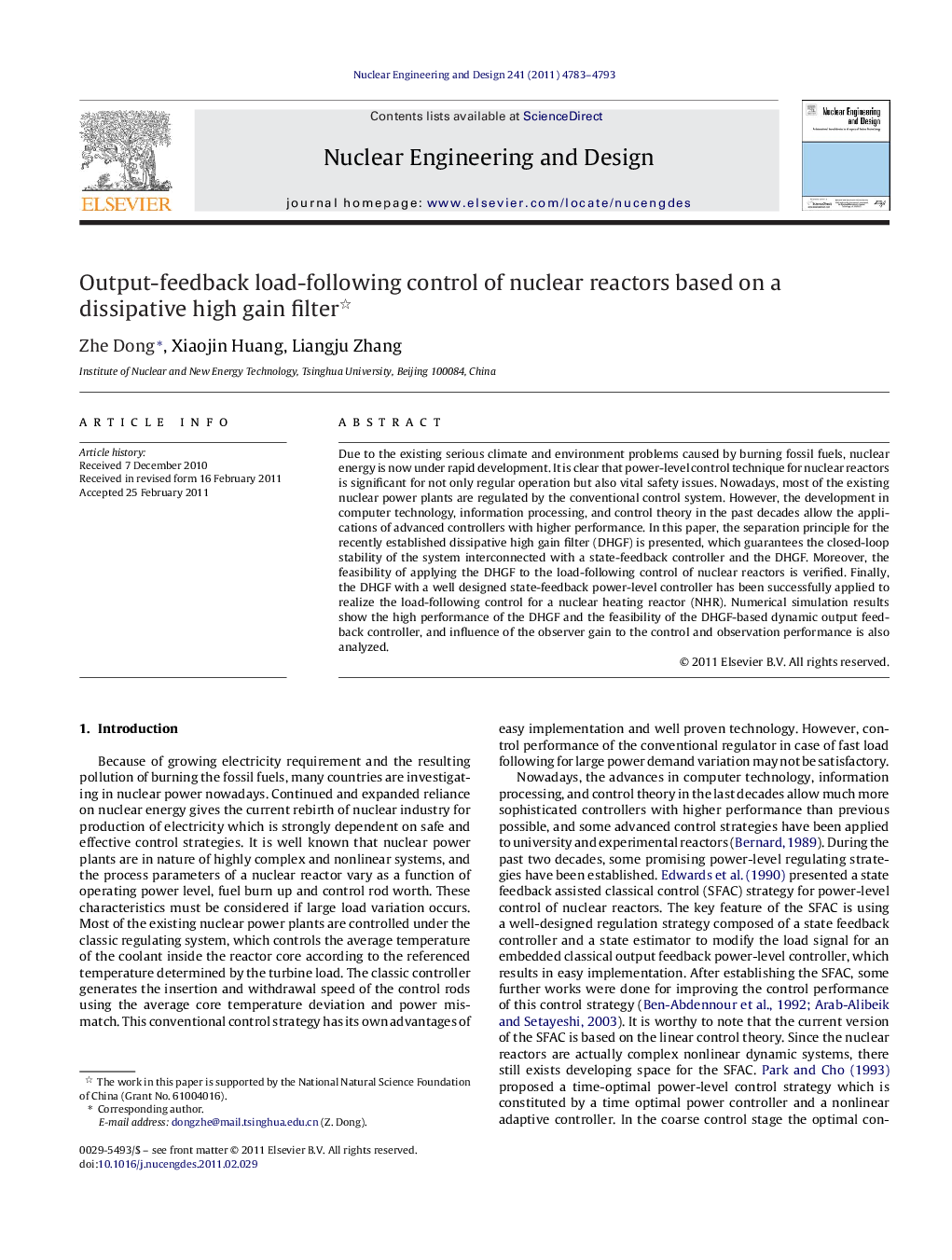| Article ID | Journal | Published Year | Pages | File Type |
|---|---|---|---|---|
| 297589 | Nuclear Engineering and Design | 2011 | 11 Pages |
Due to the existing serious climate and environment problems caused by burning fossil fuels, nuclear energy is now under rapid development. It is clear that power-level control technique for nuclear reactors is significant for not only regular operation but also vital safety issues. Nowadays, most of the existing nuclear power plants are regulated by the conventional control system. However, the development in computer technology, information processing, and control theory in the past decades allow the applications of advanced controllers with higher performance. In this paper, the separation principle for the recently established dissipative high gain filter (DHGF) is presented, which guarantees the closed-loop stability of the system interconnected with a state-feedback controller and the DHGF. Moreover, the feasibility of applying the DHGF to the load-following control of nuclear reactors is verified. Finally, the DHGF with a well designed state-feedback power-level controller has been successfully applied to realize the load-following control for a nuclear heating reactor (NHR). Numerical simulation results show the high performance of the DHGF and the feasibility of the DHGF-based dynamic output feedback controller, and influence of the observer gain to the control and observation performance is also analyzed.
► The separation principle for the dissipative high gain filter (DHGF) is proved. ► The dynamic output feedback power control based on the DHGF is given for a nuclear reactor. ► This controller gurantees the globally asymptotic closed-loop stability. ► Numerical simulation show the feasibility of this power-level controller.
